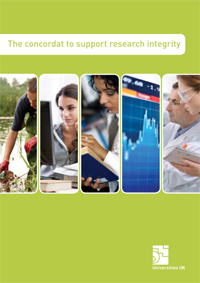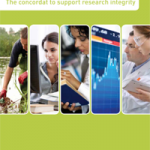 Integrity should be integral throughout the whole project life cycle, from planning (design/proposal), study set up (methods, collaborations, data management), project management (finance, compliance, data collection), reporting (publication, impact & public engagement) to data sharing (closing your project).
Integrity should be integral throughout the whole project life cycle, from planning (design/proposal), study set up (methods, collaborations, data management), project management (finance, compliance, data collection), reporting (publication, impact & public engagement) to data sharing (closing your project).
BU is committed to maintaining the highest standards of research integrity in all aspects of its research. To support Researchers in this endeavour we provide our research community with relevant policies & processes to appropriate codes of practice, robust review processes (compliance) and training opportunities.
We also provide contacts for those who might need confidential advice on concerns relating to research integrity.
Polices & Procedures
Navigating through the project life cycle can bring up many challenges and to support the research community we have a number of policies & guidance documents available. These documents should be referred to at the very start, not just when a problem arises or for a particular milestone such as an ethics review.
For example….
Research data management is very important, particularly if you intend to collect personal information from a research participant. You need to have a clear idea on the type of data do you intend to collect. In this case, a data management plan is an invaluable tool which ensures the integrity of the data you want to collect. There is a BU template available for you to use (see DMP online – link below).
Publication and authorship e.g. recognition of contributors, authorship, declaration of any conflicts of interest, meeting requirements for open access should also be considered early. Having an open dialogue can prevent issues later down the line.
- Code of Good Research Practice
- Research Ethics Code of Practice
- Research Data Policy
- Research Data Management (library guides including DPA online)
- Data Protection and Research
- Publications Policy and Procedures
- Intellectual Property Policy and Procedures (search under Legal)
- How to keep your information secure (see related documents under ”Information Security’)
- Conflict of Interest (scroll down the page to ‘Register of interests’)
Ethics Review Process
Another way the University demonstrates a commitment to promoting and upholding the highest quality academic and ethical standards is to ensure we have a robust ethics review process in place.
The ethical design and management of research is the responsibility of the researcher and the task of the Reviewers/central research ethics panels is to ensure that the researcher (staff or student) has met their responsibilities and research will be conducted ethically.
More about the research ethics and why it matters next week!
Training Opportunities
There are numerous training opportunities via the Research & Knowledge Exchange Development Framework. Workshops are available to all academics and researchers.
For postgraduate research students, there are training opportunities available via the Research Development Programme. See introductory video to the Programme and Researcher Development website for further details.
There are also a number of online resources via the Research Skills Toolkit which is available via the Research Governance & Integrity Website (training opportunities).
As different disciplines will have different issues of integrity, do check with your department as there may be discipline specific guidance on good research practice also available.
Resources
More details about the Concordats can be found on the Research Concordats website, specifically research integrity at https://www.bournemouth.ac.uk/research/research-environment/research-concordat/concordat-support-research-integrity
Coming later this year
We are planning Integrity Week 2022, when keynote speakers and interactive workshops will be available, giving you the opportunity to find out more about research integrity, how it might impact your research and the opportunity to discuss with others when dealing with issues which can come up in the field or working within your Teams. This will include both non-clinical and clinical research settings.
So, watch this space for more details.
 Research Integrity – Researchers’ Responsibilities
Research Integrity – Researchers’ Responsibilities










 Dr. Ashraf cited on ‘Modest Fashion’ in The Guardian
Dr. Ashraf cited on ‘Modest Fashion’ in The Guardian NIHR-funded research launches website
NIHR-funded research launches website Academics write for newspaper in Nepal
Academics write for newspaper in Nepal New paper published on disability in women & girls
New paper published on disability in women & girls MSCA Postdoctoral Fellowships 2025 Call
MSCA Postdoctoral Fellowships 2025 Call ERC Advanced Grant 2025 Webinar
ERC Advanced Grant 2025 Webinar Horizon Europe Work Programme 2025 Published
Horizon Europe Work Programme 2025 Published Horizon Europe 2025 Work Programme pre-Published
Horizon Europe 2025 Work Programme pre-Published Update on UKRO services
Update on UKRO services European research project exploring use of ‘virtual twins’ to better manage metabolic associated fatty liver disease
European research project exploring use of ‘virtual twins’ to better manage metabolic associated fatty liver disease